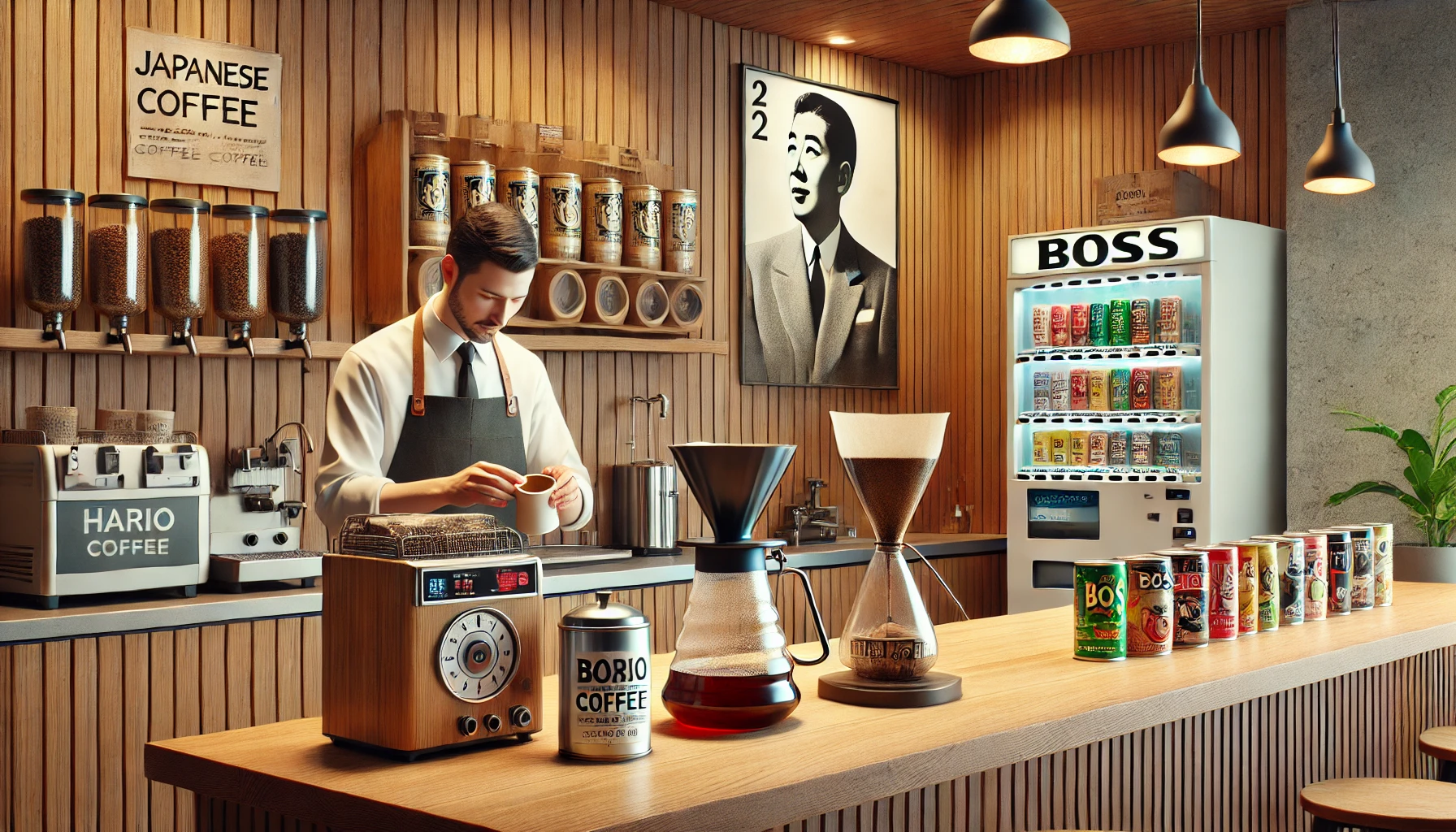Japan is known for its deep respect for ritual, craftsmanship, and detail—and its approach to coffee is no exception. While tea has long been Japan’s traditional beverage, coffee has carved out a space that reflects the country’s unique blend of tradition and modernity.
In this article, we’ll explore how Japanese coffee culture developed, the influence of kissaten and convenience coffee, and how Japan has become a leader in brewing innovation, design, and precision.
A Brief History of Coffee in Japan
Coffee first arrived in Japan in the 1700s via Dutch traders, but it wasn’t until the Meiji era (late 1800s) that coffee started gaining public traction. Early cafés were seen as Western and elite, but by the 20th century, Japan developed its own deeply rooted coffee culture.
Key Moments:
- 1930s–1950s: Rise of the kissaten—quiet, wood-paneled coffee houses focused on slow service and conversation
- 1970s–1990s: Coffee becomes part of urban lifestyle; vending machines and canned coffee emerge
- 2000s–present: Surge in specialty coffee, pour-over popularity, and café aesthetics driven by both tradition and innovation
Kissaten: Japan’s Old-School Coffee Houses
A kissaten (喫茶店) is a traditional Japanese café known for:
- Dark wood interiors
- Vinyl jazz playing softly
- Thoughtfully brewed coffee (often siphon or hand drip)
- Simple food like toast, eggs, or spaghetti
Kissaten offer a quiet, nostalgic, and refined environment, ideal for reading, relaxing, or people-watching. They represent Japan’s first major step toward creating its own identity in coffee.
Modern Specialty Cafés and Third-Wave Culture
In recent decades, Japan has become a global leader in specialty coffee, especially in:
- Pour-over brewing (notably with the Hario V60, a Japanese invention)
- Siphon brewing, using ornate glass vacuum devices
- Latte art, practiced with perfection
- Minimalist café design, blending clean lines and natural materials
Cities like Tokyo, Kyoto, and Osaka are home to world-class roasters and cafés like:
- % Arabica (Kyoto-based, globally recognized)
- Onibus Coffee
- Blue Bottle Japan
- Koffee Mameya
Convenience Meets Quality: Canned and Vending Machine Coffee
Japan is famous for its vending machines—and coffee is one of their best-selling items.
- Canned coffee brands like Boss, Georgia, and DyDo are iconic
- Options include black, sweetened, café au lait, and milk-based
- Served hot or cold, available 24/7, and surprisingly decent in taste
While some purists frown on canned coffee, it reflects Japan’s ability to combine efficiency with cultural relevance—and many people love the nostalgia and consistency.
Coffee Preparation with Precision
Japanese coffee culture values precision, ritual, and repetition, often influenced by:
- The tea ceremony, which emphasizes mindfulness and aesthetics
- A cultural preference for refined craftsmanship
- The idea of omotenashi—hospitality performed with humility and excellence
You’ll notice baristas in Japan measuring every gram, pouring water in perfect spirals, and adjusting timing and temperature with meticulous care.
Popular Brewing Methods in Japan
1. Pour-Over (Hario V60)
- Known for clean flavor and clarity
- Requires precise pouring, grind size, and timing
- Embraced both at home and in cafés
2. Siphon Brewing
- Uses vacuum pressure to brew
- Visually dramatic and popular in kissaten
- Produces smooth, full-bodied coffee
3. Cold Brew and Japanese Iced Coffee
- Japanese iced coffee is brewed hot and flash-chilled over ice
- Cold brew is increasingly popular in summer
Both methods showcase seasonal awareness—a key element of Japanese culture.
Coffee in Japanese Daily Life
- Coffee is a morning and afternoon ritual
- Office workers drink it to recharge at convenience stores or vending machines
- Students sip it while studying in quiet cafés
- Social groups gather at café chains like Doutor or Tully’s
Coffee is seen as both a personal escape and a social connector.
Final Thoughts: A Culture of Coffee, Crafted
Japanese coffee culture is a beautiful balance of aesthetic elegance, precise technique, and quiet joy. From vintage kissaten to sleek V60 cafés, from vending machines to specialty roasters, coffee in Japan reflects the country’s deep values: attention to detail, respect for ritual, and pride in doing things well.
Whether you’re sipping a carefully brewed siphon in a jazz-filled café or grabbing a vending machine can on the go, Japanese coffee culture always serves more than a drink—it serves an experience.
